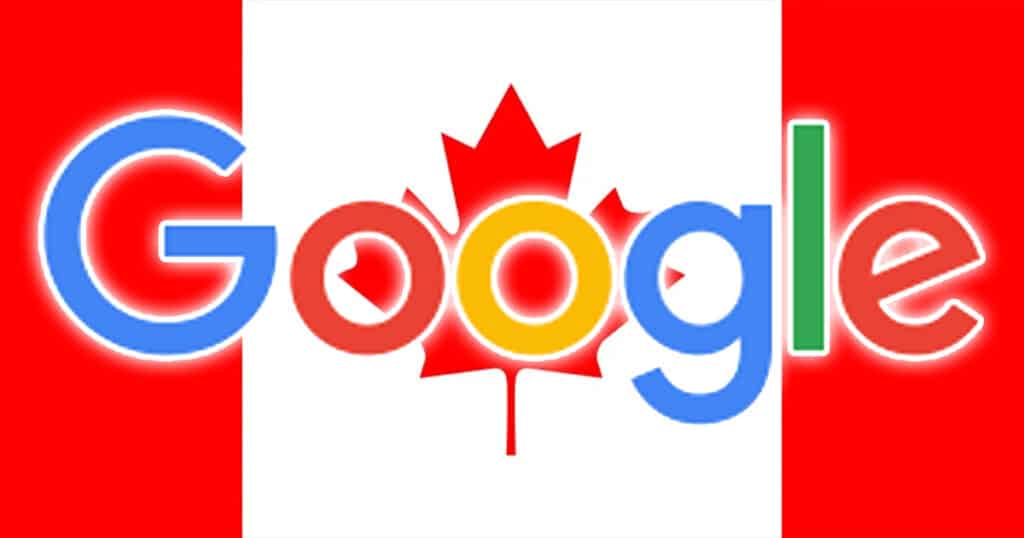
Google Is Now Banning News Content In Canada
Canada has enacted new legislation known as “The Online News” Act,” or “C-18.”
Simply stated, C-18 would require companies like Google and Meta, which owns Facebook, to negotiate deals that would pay Canadian media companies for the content they republish on their platforms.
Australia introduced a similar law last year. Now the C-18 legislation has increased the likelihood that other countries, such as the U.K., Germany, South Africa, and maybe even the U.S. may soon adopt a similar model.
If you’re like me, there’s no love lost for Google. Still, at this point it’s a necessary evil. On one hand, it provides an amazing amount of information, on the other hand it can be oppressive and politically biased.
From a pure business standpoint in the case of C-18, there are definitely two sides to the story. The bill was passed by the House of Commons in December, and will be under Senate review in the near future. As it is written right now, any company that does not comply could be fined as much as $10 million dollars for its first violation.
In a statement released by the government, the legislation was explained this way:
“The Bill introduces a new bargaining framework intended to support news businesses to secure fair compensation when their news content is made available by dominant digital news intermediaries and generates economic gain. It seeks to support balanced negotiations between the businesses that operate dominant digital news intermediaries and the businesses responsible for the news outlets that produce this news content.”
A spokesperson for Pablo Rodriguez, the Canadian Heritage Minister, stated:
“Canadians need to have access to quality, fact-based news at the local and national levels, and that’s why we introduced the Online News Act.
Tech giants need to be more transparent and accountable to Canadians.”
Obviously Google opposes this action and stated their position clearly last October when they appeared before the Standing Committee on Canadian Heritage.
Google believes that contributing to a central fund that would pay media outlets indirectly is a better solution than negotiating with individual media companies. They believe that the legislation would favor larger media outlets. They also voiced concern that the bill has no requirements addressing journalistic standards, which in their opinion could:
“lead to the proliferation of misinformation and clickbait.”
As we all have learned, what tech companies consider misinformation is very often in reality … Truth.
Sabrina Geremia, Google’s Canadian Vice President, and Country Managing Director wrote in November:
“We do not think that these measures are in the interests of Canadians, nor are they an effective response to the unique challenges facing Canadian news publishers. As currently written, this legislation won’t strengthen or sustain the Canadian news ecosystem and will make it harder for Canadians to find and share authoritative news online.”
In response, Google has begun a five week long test whereby their estimates, approximately 4 percent of Canadian users will be impacted.
A Google spokesperson said this:
“We’re briefly testing potential product responses to Bill C-18 that impact a very small percentage of Canadian users. We run thousands of tests each year to assess any potential changes to Search. We’ve been fully transparent about our concern that C-18 is overly broad and, if unchanged, could impact products Canadians use and rely on every day. We remain committed to supporting a sustainable future for news in Canada and offering solutions that fix Bill C-18.”
To learn if you are affected, open the Google search engine and type in a word that has something to do with Canada. Then click on the Google “News tab.” If stories are shown from Canadian news sources you’re probably not blocked. If the news you see is only from the U.S. and other sources you’re probably in the 4 percent.
Admittedly, this is a complicated issue. I prefer arguments that have clear good vs bad scenarios. In this case we have Google, a great source of information, but also Marxist at times in its censorship and intimidating with its politically biased power to control said information. On the other hand we have the government, untrustworthy on all levels.
In this case, I agree with Peter Menzies, the former Vice Chairman of the Canadian Radio-Television and Telecommunications Commission.
“Bill C-18 will permanently entrench the industry’s dependency not on the loyalty of citizens, readers, and viewers, but upon the good graces of politicians and the ability of offshore, quasi-monopoly tech companies to remain profitable. When 61 percent of Canadians believe journalists are purposefully trying to mislead them and 58 percent think the same of government, having those two team up doesn’t seem like the best idea.”
Let’s face it, Google is trying to protect its profits and I’m sure the government already has a plan in place to siphon off what they believe to be their share.
Unrelenting greed and behind the scenes money laundering.
Now, that’s news in itself.



